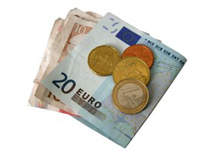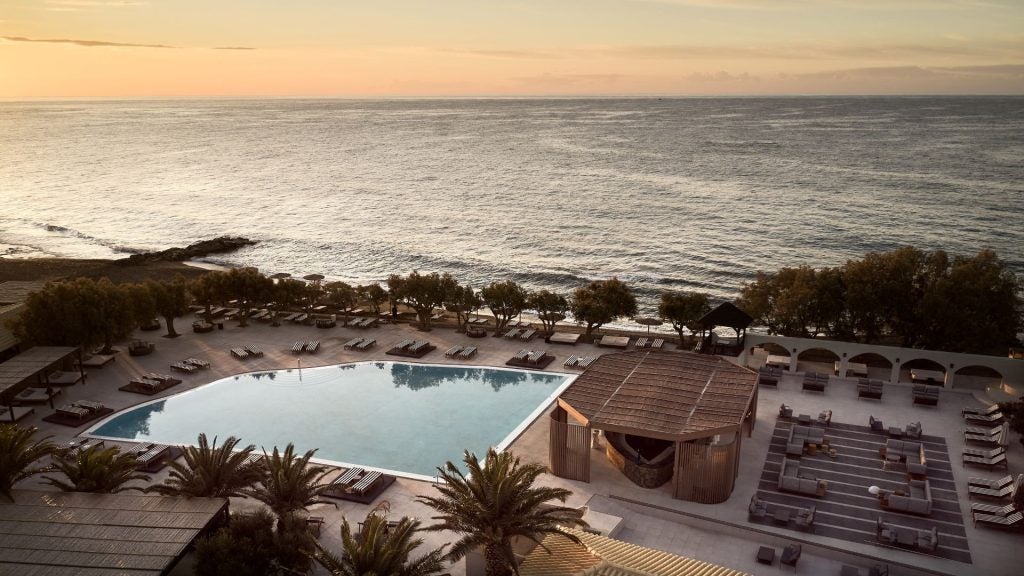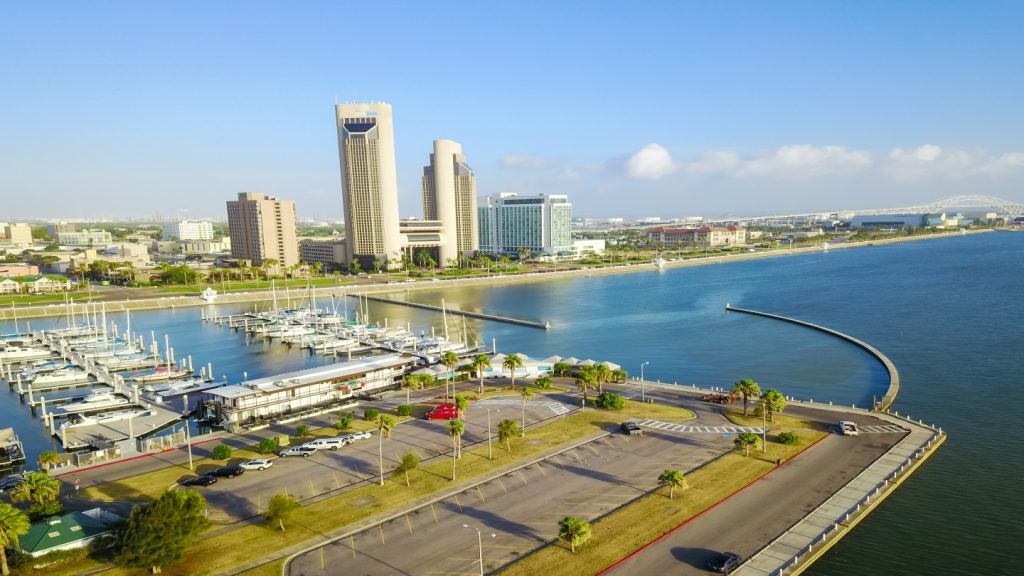
In the hype and excitement that accompanied this year’s World Cup, many newspapers turned their attention away from the action on the pitch to analyse the effect that hosting such a huge event would have on Germany’s long-term tourism prospects and its overall economy. Many commentators expressed astonishment at how positive the experience had been in promoting a country many football fans might not have otherwise visited.
Yet few in the German hospitality sector will have been surprised at their World Cup success. Many were likely forecasting their profit expectations for 2006 largely on playing host to the global tournament.
According to the 2006 American Express Hospitality Monitor survey, which focuses on the key commercial issues affecting hotels and restaurants across Europe, more than half of Germany’s hotels and restaurants viewed the hosting of a major sporting
event as having a positive effect on profitability. At the time of the survey, conducted in spring 2006, the imminence of the World Cup made the German hospitality sector the most positive in Europe.
EUROPEAN IMPROVEMENTS
Hospitality Monitor 2006 also revealed the Germans are not the only ones who are optimistic about their future profit outlook. More than two out of three European hospitality companies said they expected profits will improve or stay the same in the coming 12 months, with one in four predicting an upturn in profit of up to 10%.
See Also:
“If you look at how the industry has grown since 2001, confidence levels have increased across many European markets,” says Kathryn Pretzel-Shiels, hotel and restaurant director at American Express. “There has been some impact due to natural disasters
and political strife around the world over the last year, but from what we have seen, the sector has been resilient and recovered quite quickly.”
How well do you really know your competitors?
Access the most comprehensive Company Profiles on the market, powered by GlobalData. Save hours of research. Gain competitive edge.

Thank you!
Your download email will arrive shortly
Not ready to buy yet? Download a free sample
We are confident about the unique quality of our Company Profiles. However, we want you to make the most beneficial decision for your business, so we offer a free sample that you can download by submitting the below form
By GlobalDataThe UK is the most optimistic about its profit outlook, with 71% of businesses forecasting a stable or improving level of profitability. “UK confidence has increased for a number of reasons, among them the winning bid to host the 2012 Olympics,” says
Pretzel-Shiels. More generally, the hospitality sector is experiencing a boost due to higher levels of disposable income and leisure time and the falling cost of air travel. Companies that are part of a corporate group are more likely to have a positive
profit outlook (43%) compared to those that operate as single, independent sites (35%) without a parent or sister company to help them through difficult economic times.
INTERNAL FACTORS
According to Pretzel-Shiels, the importance of the relationship between hotel operators and property owners was identified as a key success driver at the American Express 2006 Hotel CFO Forum. “These CFOs told us that those hotel operators that have
good working relationships with property owners have a better chance of being successful. For example, this might mean the operator and owner are better aligned on the need to refit, refurbish or redecorate a hotel property.”
The American Express survey found that external factors – such as oil prices, politics and the economy – were not seen as one of the main concerns by hoteliers around Europe. Only 6% of businesses said that they considered the overall
health of the economy to be their most significant challenge. Instead, competitors, customers and staff were identified as more formidable challenges.
“I had expected a little more concern about external factors,” admits Pretzel-Shiels. “But we are seeing that the hospitality industry is more focused on those factors that they have control over. In addition, I’ve seen a strong sense of
partnership with hoteliers working to grow the sector overall – and that benefits everyone.”
Recruitment and retention remain a key challenge in the sector. In many countries, the number of future hospitality sector employees lags against the fast-paced growth of the sector. Hoteliers in the UK have added approximately 2,000 new rooms each
year for the past few years and this has contributed to an enormous skills shortage in the sector. “The good news is that the industry has increased its focus on attracting young people to choose the hospitality industry as a career option. However, it
continues to be a challenge,” says Pretzel-Shiels.
Amidst the optimism of the sector, new developments in the industry such as the expansion of distribution channels, internet intermediaries and the advent of dynamic pricing are putting pressure on price. Nearly half of the hotels surveyed in the
American Express 2006 Hospitality Monitor regarded charging varied rates for the same hotel room by channels as a negative industry trend, particularly among single independent site hotels.
PRICING
In the face of such pressures, many hoteliers have responded with a review of their own pricing structures. The Hospitality Monitor 2006 shows that all hotels are reviewing prices at least once a year, with many hotels in the larger European
economies, such as the UK and Germany, examining their prices most frequently. The expansion of services in hotels appears to have provided some flexibility. “Hoteliers can generate additional revenue when visitors spend money in their restaurant, spa or
bar, and this has enabled hotels to offer special rates or promotions to fill nights that typically generate lower occupancy rates,” says Pretzel-Shiels.
However, competing on price alone is increasingly difficult and many hospitality businesses are now attempting to sell the ‘experience’ in a bid to attract both new and repeat business. A reported seven out of ten hotels and restaurants were keen to
be seen as innovative and stylish. The partnership between Holiday Inn and Nickleodeon aims to deliver the ultimate in family hotels. Marriott’s Luxury Group partnership with Italian luxury goods and jeweller Bulgari spawned the Bulgari Hotel in
Milan.
“The industry’s heritage was built on efficient service, but innovation, style and offering a premium experience are increasingly important brand drivers,” notes Pretzel-Shiels. “Hotels once aspired to be as comfortable as someone’s home. Now guests
are looking to make their homes as stylish as the hotels they stay in, which is a reflection on how successful the industry has been in creating outstanding experiences.”
CUSTOMER SATISFACTION
The vast majority of hospitality providers also report aiming to boost profitability through customer loyalty, with better understanding of customer satisfaction and preferences. The Hospitality Monitor 2006 reveals that 90% of those with a positive
profit outlook make an effort to collect customer feedback, compared to just 76% of those with a negative outlook.
The main reasons for collecting customer information vary widely. Only one in four hospitality providers are expressly using this data in order to increase margins, despite margin being critical in hotels with fixed capacity. These hotels tend to be
in countries such as the UK and Germany, which may be more advanced in the use of customer feedback to enhance profitability.
Of the hotels in Europe, 54% have some kind of loyalty or frequent customer programme in place, although the sophistication of these programmes varies widely. Some offer ‘buy one, get one free’ deals, which might result in immediate and isolated sales
uplift. Other schemes are designed to learn about and better understand customer behaviour, enhancing profitability in the long term. Loyalty schemes may be an underutilised tool, with only one in four hotels and restaurants using a loyalty scheme to try
and improve the bottom line.
Looking ahead, successful hotels will be those that innovate by offering profitable services that customers want. In a market so easily swayed by customer tastes and fashion, anticipating the needs of customers over the coming decade is the next
critical challenge for hotel profitability and industry growth as a whole.







